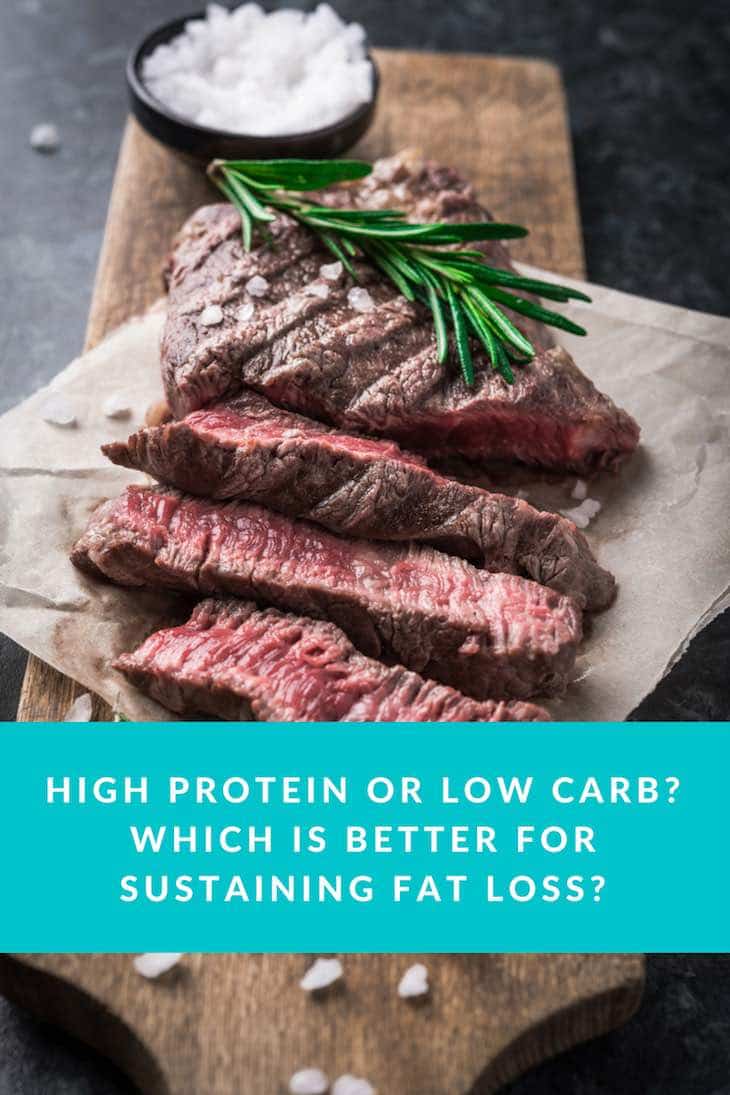High Protein or Low Carb? Which is Better for Sustaining Fat Loss?

Losing fat is hard enough.
The worst part is that most of us can’t keep it off. And that’s just mean.
If you work hard enough to lose the fat in the first place, shouldn’t there be a rule that it’s impossible to gain back???
Of course, that’s not how it works, and most folks gain back all (or often more than all) of the fat they lost. But some lucky few do manage to keep off the fat forever.
What’s the Difference?
There isn’t ONE single difference, but a recent study conducted in Europe (and involving a lot of people) points to one significant difference. Here’s the study:
Weight loss maintenance in overweight subjects on ad libitum diets with high or low protein content and glycemic index: the DIOGENES trial 12 months results
The researchers were interested in finding out if low carb or high protein diets (or both) would contribute to sustained fat loss. And they got half of what they were looking for.
Protein Matters, Carbs not as much
It turns out that individuals on a high protein diet were significantly better at keeping off the fat that they’d lost, no matter if they were eating high carb or low carb.
In other words, if you’re trying to not regain lost fat, it probably behooves you to eat enough protein every day.
Now, this wasn’t the kind of study that could answer the question of why high protein matters. It’s likely because of satiety (feeling full), but it’s interesting to note that the amount of carbs eaten did not have any correlation with the ability to maintain fat loss.
Unfortunately, there was no group of participants in the study who were required to eat high protein but also avoid processed foods. I obviously would have liked to see how that group would have done.
Go High Protein, Especially in the Morning
It’s not particularly surprising that protein matters. Protein in the morning helps to regulate blood sugar and adrenal function, and protein is generally very satiating, meaning it will keep us full for longer.
On the other hand, given that many people do not handle starches and sugars well (in terms of digestion and gut health), it’s a little surprising that there was no correlation at all with levels of carbs consumed.
Can you have too much protein? Possibly. Dr. Tommy Wood, M.D., PhD. says moderate consumption of protein is best, even for people trying to build muscle. “Remember that more protein (much more than 1.5-1.8g/kg) isn’t necessarily better, and skipping a meal or missing a protein shake will absolutely not affect your long-term gains.”
According to Registered Dietitian Franziska Spritzler, RD and Dr. Andreas Eenfeldt, M.D., “There is often some debate within low-carb communities about protein and people can feel very worried about how much protein to consume on a low-carb or ketogenic diet. However, generally speaking, when consuming meals that contain enough fat and non-starchy vegetables and are based on real, whole foods, most people will find it difficult to go overboard with protein.”‘
Eer heard of Protein Sparing Fast? Listen to our exclusive interview with Maria Emmerich here.
Images: Copyright © Barbara Pheby Fotolia
